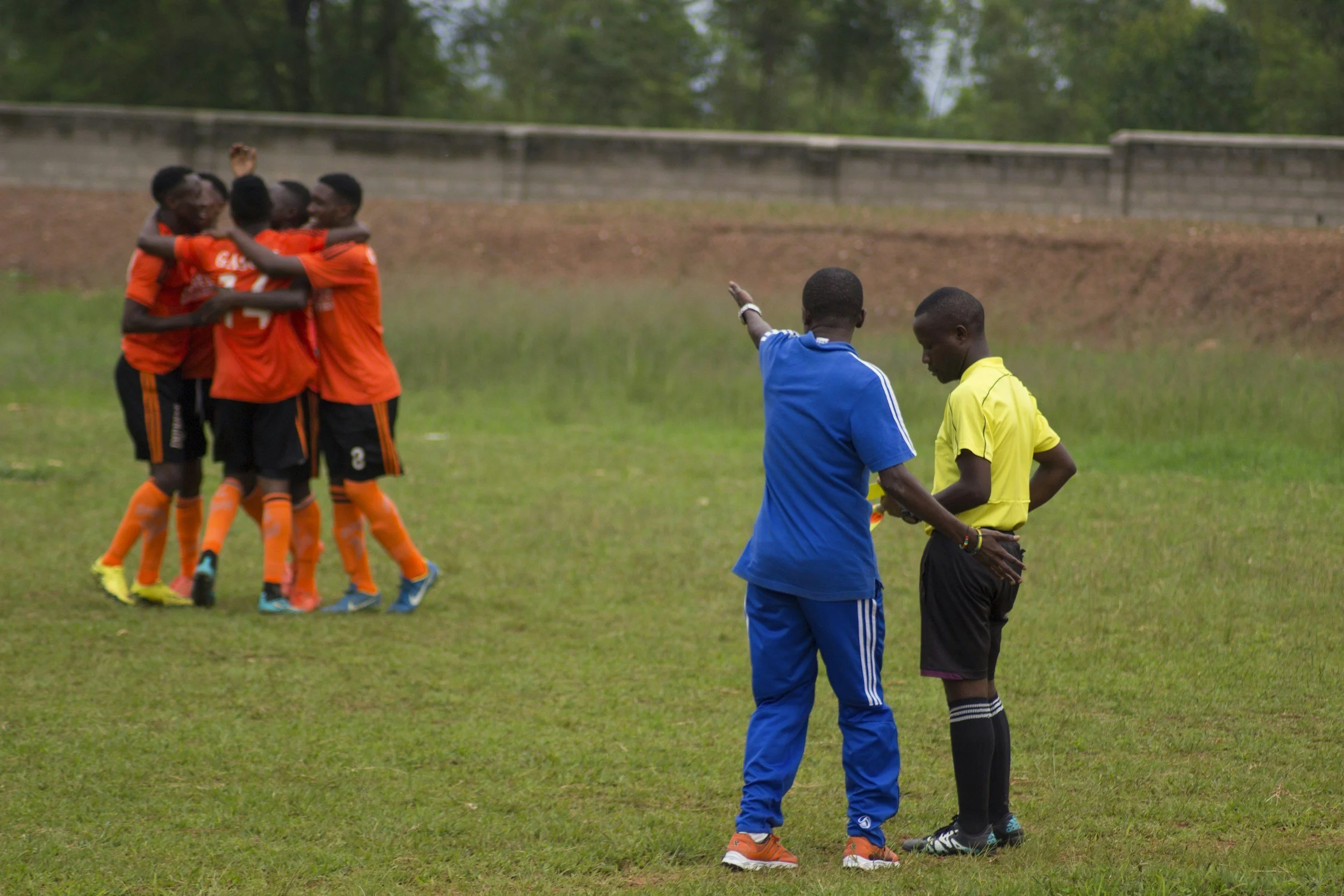
What is the Difference Between Self-Worth, Self-Esteem, Self-Confidence, and Self-Efficacy
The concepts of self-esteem, self-confidence, and self-efficacy tend to get thrown around a lot and often interchangeably. And yet, they mean different things. Furthermore, how one works to address these different concepts is also different. Thus, it is worth taking the time to break these down.

Returning to the Sport You Love
Returning to the sport you love from a serious injury can be challenging, as there are many physical and psychological factors to consider. This post focuses on three psychological factors pulled from self-determination theory (SDT) that a sport and performance professional (SPP) and an athlete may want to address.

Mental Preparation for Adolescents Before the Big Game, Meet, or Race
It’s the week before a big game, meet, or race. What can you do mentally prepare? This post focuses on adolescents, but many of the ideas are applicable to adult athletes as well. Additionally, there are so many more to consider. This post just has three to get you started.

Team Cohesion - Task and Social Cohesion
Team cohesion is a common topic in many fields. Chances are that many of us are familiar with team cohesion in the work place, for example. Team cohesion in sports is another great example and a place to explore. Thus, this post aims to look at task cohesion and social cohesion to discuss the interplay between both types of cohesion as it relates to building effective team performances.

Barriers for Sport and Performance Consultants
Sport and performance consults exist within the world of psychology. They also exist within the world of sports. Both of these worlds introduce challenges for how a sport and performance consult can be introduced into the picture to help athletes. What is identified in this post about barriers for sport and performance consults hopes to illuminate some of these barriers and suggests ways that these barriers can potentially be overcome.

Motorsport Demands and Effective Practices Part 2: The Effective Practices
Motorsports are unique because there is the material factor, the car. The car is thus a factor that an athlete can engage in DP with, as discussed above. However, there are aspects of the material factor the athlete cannot utilize DP to help address physical, physiological, psychological, and competitive demands.

Motorsport Demands and Effective Practices Part 1: The Demands
Athletes flourish and grow in their chosen sport as they come to learn, understand, and master the unique demands of the sport. The first step, however, is identifying those unique demands. This blog post explores motor sports athletes' physical, physiological, psychological, and competitive demands as an example.

Confronting Fear When Injured Part 2: Working with Fear?
We will briefly explored some techniques and ideas that have helped athletes address fear during injury recovery. This is meant to be information only, not a form of treatment or a recommendation for a treatment approach. It is essential that these approaches are done with the support of a professional, like a sport and performance consultant.

Confronting Fear When Injured Part 1: What is Fear?
Injury does happen as much as many of us would prefer that it not happen.Who wants to be sidelined with any injury or even worse taken out of your favorite sport all together? What about the journey back from injury? It can be filled with many different emotions, thoughts, and experiences. This post is going to focus on fear. Yes, fear when it comes to coming back from injury. While we may not want to talk about it, we are going to go there because it is essential. It is best to start at the beginning, which means we need to understand fear and what some common fears are for injured athletes. Chances are while reading, you may recognize some of your own experiences. This is only part one of a two part series. The second part will look at techniques and concepts for helping to address fear.

The Mental Skill of Self-Awareness to Benefit Us and Athlete Memory Part 2: Action and Practices
In the first part of this series, the foundation was laid, discussing what self-awareness is and some other factors to consider. Now it is time to see self-awareness in action. This post does get a little long. Just a heads up!

The Mental Skill of Self-Awareness to Benefit Us and Athlete Memory Part 1: Foundation
It is said that expert athletes have a good memory. If that is the case, can self-awareness be helpful in building an expert athlete’s memory? Let’s explore and see what we find.

Training, Memory, and Recall
Let neuroscience come forth! Not everyone is a neuroscience fan like myself, and that is completely okay. Neuroscience is not for everyone. In the case of this post, neuroscience does have to be brought up because it sets the stage for discussing memory and recall.

DNFing an Event or Race
The dreaded DNF, Did Not Finish! Why is this person writing about DNFing? Because we need to talk about it so that instead of dreading the DNF we understand how to use it to our advantage.

The Complexities of Athlete Learning Part 2
Part 2! Last time, we looked at errorless learning and external and internal focus of attention. Now we will build on last week and continue with the analogy of the ice skater. Today we will dive head first into analogy learning and implicit and explicit learning techniques.

The Complexities of Athlete Learning Part 1
Three key teaching concepts, errorless learning, external focus of attention, and analogy learning, may be used to support this skilled athlete in enhancing performance and improving preparation.

Implicit versus Explicit Training
What is implicit and explicit training in the world of sports? Implicit learning is learning that happens with little to no instruction from an outside source such as a coach and is more focused on the athlete’s experience. A few good examples of this is learning to ride a bike, using an analogy to teach a skill, or allowing an athlete to learn via sensory experience versus verbal feedback. In contrast, explicit learning is where an outside source such as a coach provides an athlete with verbal instruction.

Fitts’ Law in Motion
These stages help guide how Fitts' Law informs the role of motor learning and integration.

Growth Mindset
Dweck talks about the growth mindset and the fixed mindset. As the growth mindset speaks about fostering one’s ability to persist and build a skill set versus the fixed mindset that talks about the belief in innate ability.

Getting Your Attention
Attention and concentration in sports is a hot topic, and as with other hot topics in sports, there are different theories about attention. Attention is, basically, what we are seeing or observing. There is also value in understanding theory in order to understand how it can be applied in your life. So, while it may be a bit information dense, it will be worth taking the time. Below we will explore three different theories of attentional processes.

Motivational Theories in Sports Psychology
What is motivation? Why should we care about motivation? Motivation is what drives us to accomplish our goals. Researchers are always interested in learning about different concepts, including motivation and why we want to reach our goals. Two different theories have been proposed based on some of the research coming out of the field of sports psychology. Let’s learn a little bit about two of these theories to see if they can be of benefit to you.